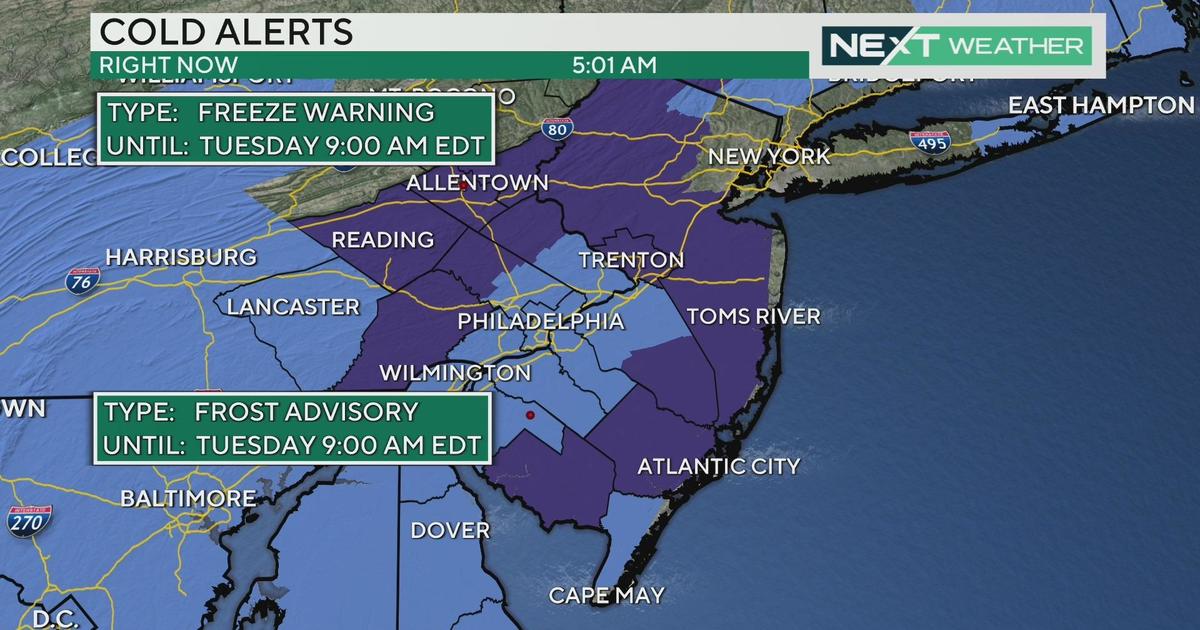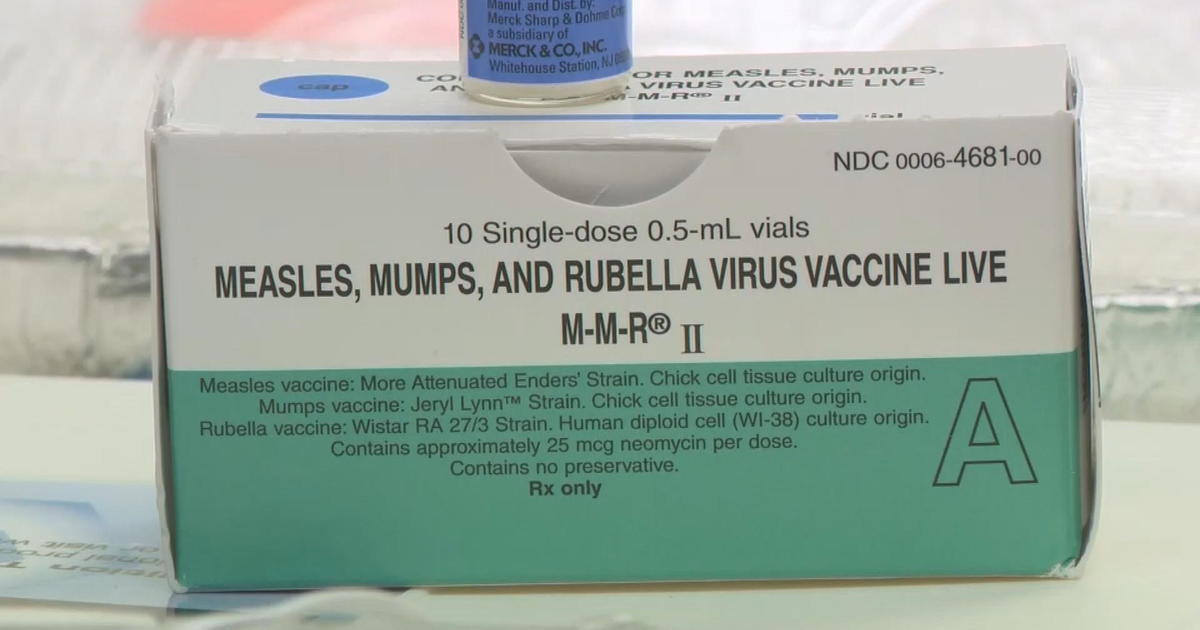Infants, Those Not Vaccinated Are At Highest Risk For Measles
PHILADELPHIA (CBS) - The Pennsylvania Department of Health is warning of possible exposure to case of measles in Bucks, Delaware, Lehigh and Berks Counties (see related article for details and exposure sites).
This is not anything that should cause a panic. What we're really trying to do is raise awareness that measles is out there and that it's a concern. So, if you start to develop symptoms, then you have to recognize those symptoms and make sure you get checked out by your doctor.
Measles can be spread from coughing or sneezing, touching contaminated objects -- it's really easy to spread. It's caused by a contagious virus and its symptoms usually begin one to two weeks after exposure. They include runny nose, watery eyes, high fever, cough, but after four days the classic red rash starts to spread on the face, down the body and to the arms and legs.
Now, most people have been vaccinated against measles, so you may be wondering why this is a concern. Well, the whole idea behind a vaccine is herd immunity. If everyone gets the measles, mumps, rubella (MMR) vaccine, then it should be eradicated, but that's not necessarily the case, because some people don't get the vaccine. They are the people who are more likely to get the measles virus and to spread if they're exposed.
Then, even people who have had the vaccine, but they didn't get a sufficient dose or are at higher risk of having problems. Women who are pregnant are more at risk for a miscarriage. All of these things are problems once it gets out into the community.
Reported by Dr. Brian McDonough, KYW Newsradio 1060



